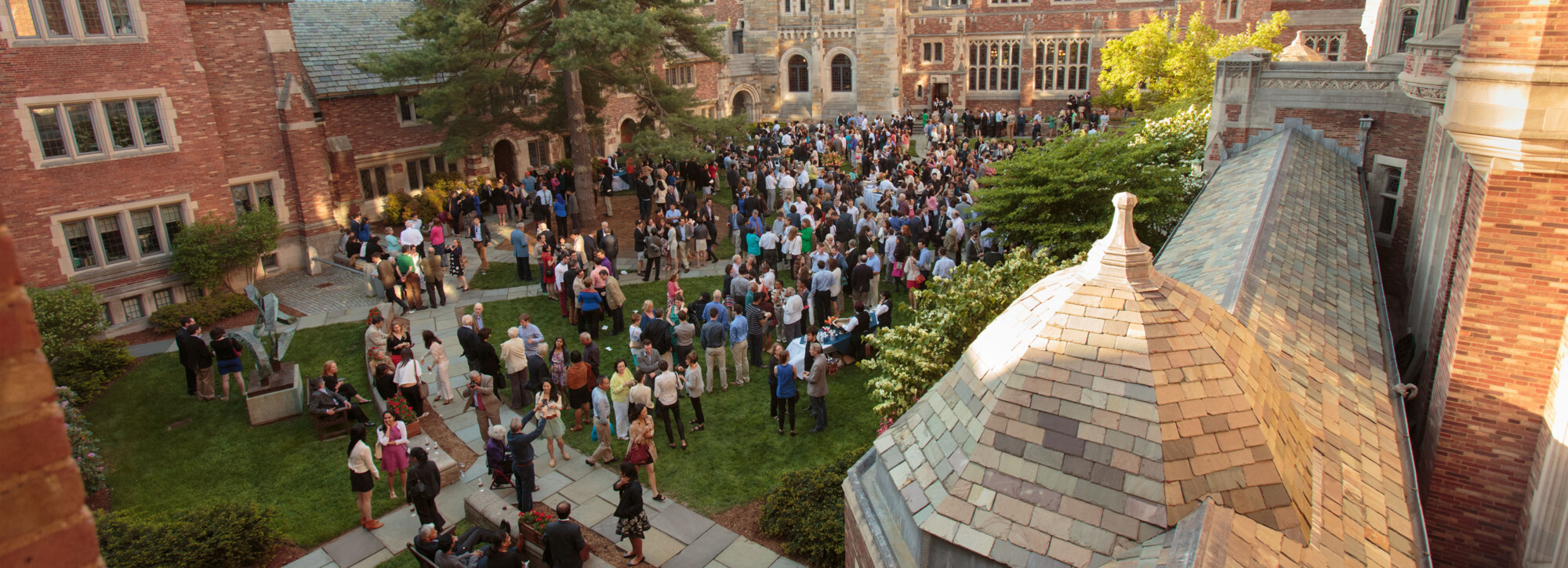
1. How has working with the Solomon Center and the Medical-Legal Partnerships (MLPs) influenced your career goals?
Having come to Yale Law School after working on health policy and the implementation of the Affordable Care Act, I was interested in pursuing legal work focused on the social determinants of health, or non-biological factors that influence individuals’ health status. My experience working across Yale’s five MLPs showed me how integrating lawyers into the health care delivery system can build the interprofessional cooperation that is often necessary to helping patients get and remain healthy. Yale’s five MLPs serve patients in a wide variety of care settings and represent one of the most comprehensive and ambitious MLP programs in the country. The Solomon Center has been a wonderful addition to YLS, placing the MLPs and other cutting-edge health-focused initiatives under one roof and providing them the support they need to succeed and grow. The opportunities I had at the Solomon Center to research systemic issues in health care while directly assisting underserved patients in the New Haven community prompted me to seek similarly hands-on, creative work immediately following graduation. During and after my fellowship year, I look forward to continuing to pursue systemic change one patient and client at a time.
2. Why do you think MLPs are so important?
Fortunately, there is a lot of energy around the MLP model right now, and for good reason. MLPs show great promise in producing better patient outcomes at lower cost, the goal that the Affordable Care Act was designed to achieve. The growing success of MLPs is the result of a sustained effort among health care professionals, social workers, lawyers, and patient advocates to resolve the underlying issues that produce and exacerbate debilitating health conditions. In addition to improving patients’ health, MLPs can change how health care professionals and lawyers approach the people they serve. With MLPs, health care professionals become more likely to identify where legal interventions could be helpful, lawyers can proactively address legal issues before they reach a crisis point, and these traditionally siloed professions can work together to improve patients’ lives. An often invoked example is housing: health care professionals can be trained to associate certain health conditions like asthma and elevated lead levels with unsafe housing, lawyers can be recruited to assert habitability claims before tenants are facing imminent eviction, and health care professionals’ expertise and support can make these habitability claims more likely to succeed.
3. What will you be doing after graduation?
After I graduate, I will work for one year as a Liman Fellow at the Lawyers’ Committee for Better Housing in Chicago working to expand their MLP focused on housing issues. Since the Lawyers’ Committee’s MLP was started several years ago, they have repeatedly encountered landlords who refuse to complete improvements that tenants have demanded through their MLP attorneys. My project will involve using the existing MLP model to identify clients with promising claims for affirmative litigation against recalcitrant landlords and design a successful legal strategy to recover damages or injunctive relief. Although landlord-tenant law in Chicago is generally favorable for tenants, habitability claims are rarely asserted affirmatively but rather only as a defense to eviction. By allowing attorneys to identify potential habitability cases before tenants are facing eviction, my project hopefully will help move landlord-tenant law and tenants’ bargaining position forward. I am excited to contribute to the growing evidence base showing MLPs’ effectiveness and help lower-income tenants in Chicago assert their legal right to livable housing.
